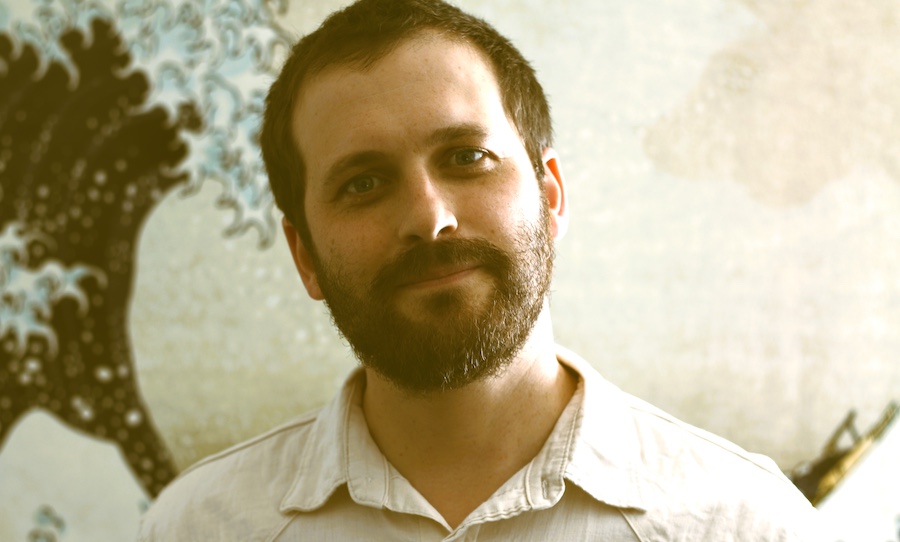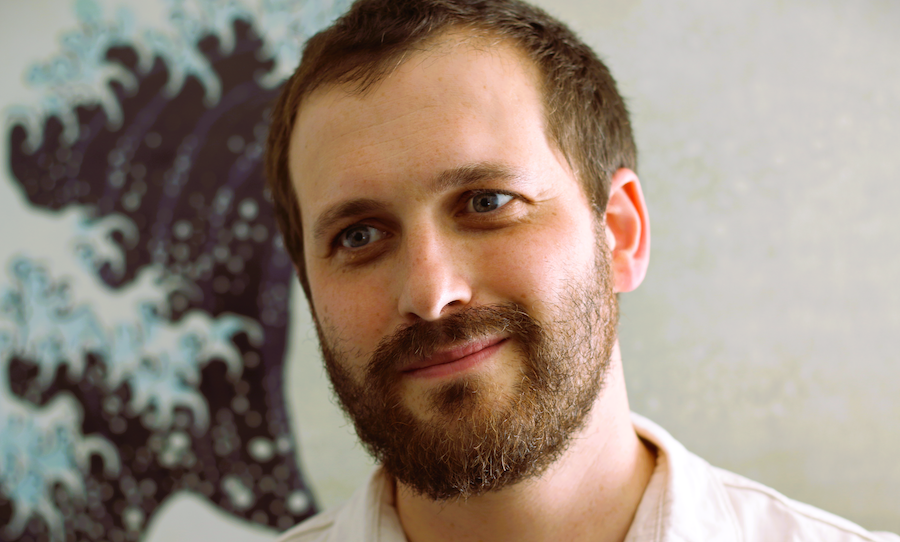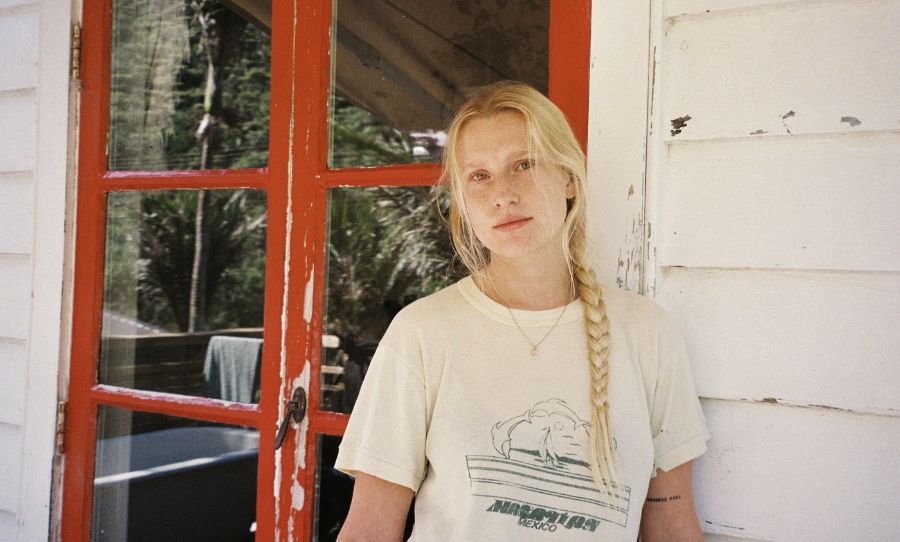The prolific artist unveils his most intimate album yet, ‘Storytelling,’ a solitary studio journey two decades in the making.
After a prolific, nearly two-decade-long career spanning 13 independent albums, Canadian singer-songwriter Kaleb Hikele is releasing his most personal work to date.
His new single, ‘Slowly,’ is the heartfelt debut from his upcoming album, Storytelling, a project he describes as his “whole heart.”

Written in 2016 as a prophetic “handwritten letter” to himself during the early days of falling for his now-partner, Jess, the song has finally found its moment.
Recorded in the resonant space of Catherine North Studios, Storytelling is a solitary triumph; Hikele played every instrument and vocal part himself, weaving folk, rock, and soul into intimate narratives.
As he prepares to debut the album live on a 13-date Ontario tour, the FCLMA 2024 Ontario Independent Recording Artist winner proves that for him, the art has always been about the profound connection music fosters, not just the accolades.
Happy: What’d you get up to today?
Kaleb Hikele: Funny enough, the day I got this Q&A I was too busy to answer it while I was hibernating in the studio recording from dusk till dawn, for about 72 hours straight.
So I’ll answer from the perspective of that day, instead of being at work like I am today (by day I’m a healthcare worker!)… Last Monday, Oct. 6th to Oct. 8th, I was holed up at The Townhouse Recording Facility & Sound Studio, my home studio in Toronto’s east end.
I was recording overdubs for the “Self-titled” album by The Sun Harmonic, the 7th studio album under my storied stage name. I was mostly recording piano, organ, some harmonies, a few electric guitar parts, and in three days I finished tracking the album! It’s been a long time coming…
Happy: Tell us a little about where you’re from, and what you love about it!
Hikele: I was born and raised in St. Thomas, Ontario, Canada. Honestly I think my sense of independence and DIY pursuits comes from the seclusion of a small town as a kid and budding musician.
There wasn’t much of a structure for bands, compared to the bigger city of London close by, so we setup shows in garages, field parties, youth centres, skate parks, anywhere we could convince someone to let us play.
Growing up with a small town mentality meant that I had to do everything myself to get my music off the ground. I designed show posters and put them up around town and in my highschool hallways, I burned CD’s and sold them at local shows.
I booked my own tours and recorded my own solo albums at home and basically started doing what I’m still doing today, way back in 2007 (2004 with my punk bands but that was a little hazy and more of a wild punk effort, before I realized the singer-songwriter route was ever my thing).
Happy: ‘Slowly’ is described as a “handwritten letter to yourself.” What is it like to release such a personal, prophetic song almost a decade after you wrote it?
Hikele: This song wouldn’t have been the same if I had written and recorded it in a shorter period of time.
It took years to grow wings, change keys, there’s even a video on Youtube showing how I started playing and writing it (it used to be called “Love, A Mystery” before Jess renamed it, google that for a video from my home studio many years ago…).
I recorded this track in 2021 at Catherine North, the vocals in 2022, and now in 2025 I’ve finally had the time and allowance in my life to work on the song and release it as it is.
And I’m proud of it. It does have a bit of foreshadowing in the lyrics that I only see now that time has passed…
Happy: Having written a hundred love songs before, what made ‘Slowly’ feel so different?
Hikele: I think the first line says it all – “Slowly moving, one side to the other I go” – this was a transition from love songs that were written FOR someone, to a love song that was written TO someone, in a way.
A lot of my love songs from the 2010’s had a subject but not a recipient if that makes sense, I was single and quite independent (and lonely at times) and met people in my life along the way that inspired me to write songs about them.
Beautiful ladies and human beings who came along, while I served them at a restaurant, or met them at a party, or danced with them at a wedding, all of which I was inspired. The muse continued, but I never fell in love. Or they didn’t fall in love with me. This time was different. I knew that I was falling.
And the lyrics reflect that imagery, “You bury me” “Slowly I’m sinking below”, it was quite sure of itself that I was falling in love and nine years later we continue.
Happy: You played every instrument on the album yourself. Why was it important for this particular project to be such a solitary creative process in the studio?
Hikele: I did, every sound you hear is performed by me in the studio either at Catherine North (in the natural reverb of the church) or back at home in Toronto at The Townhouse.
Many of my solo albums and the first decade of The Sun Harmonic sound like a full band, but it’s just me playing 5-10 times over top of my self… It’s very cool and fun, especially to challenge my technique on each instrument, but it doesn’t beat playing with a band in a room.
The best part is seeing and hearing it all come together when the recording is done, it’s almost exactly what I’ve heard in my head but I’m finally listening to it from a pair of speakers instead.
As far as taking the reins as the sole instrumentalist (and vocalist) of this project, these are such personal songs telling stories of my loved ones and my own experiences that I couldn’t help but put my whole heart and soul into the recordings.
Even the “female vocal” sounding parts, those are me. I’ve heard these songs in my head for years or some almost a decade, I knew where to go but still let some magic and improvisation happen along the way.
View this post on Instagram
Happy: You have 13 independent albums under your belt. How has your approach to recording and songwriting evolved from your first album at 19 to now?
Hikele: My next album is technically number 13. But since I’m working on two albums, I’m actually not sure which one will be 13 and which will be # 14.
But by 2026 I’ll be recording my 15th and hopefully have both of my current projects behind me… It’s a bit surreal to be honest.
Happy: You’ve described this album as your “whole heart.” After so many projects, what made this one feel so definitive?
Hikele: I’ve made a few concept albums before. But this one is different. Rather than the concept of HOW or WHERE I recorded the album, like Winter or Coast to Coast, this album is about WHY I’m recording these songs.
They tell stories that I need to share with the world. The album is the most personal, diary-like, intimate and revealing group of songs I’ve ever collected. I cried a few times recording the vocals, put it that way.
It’s full of emotion, the full range of emotions in this life. And I hope a lot of people can relate to those feelings.
Happy: Following your massive 73-date run in 2024, what are you most looking forward to about heading back on the road with this new material?
Hikele: Singing the album from front to back! It’s a very cool challenge and I loved the idea from the time I came up with it, a few years ago. I’ve staged this show once, in Waterloo at Emmanuel United Church (where I’m starting the tour this year) and it was an absolute thrill to perform it.
I was in a choir growing up, performed in high school plays, I’ve always had a theatrical performative side to me, but this is the first time I feel like I’m applying it to my live folk show as a songwriter.
It’s not a “gig”, I’m not just playing a list of random songs, this is a concert. Each night I will sing the same songs in the same order, the way you will hear them when the album is released.
Plus I’ll throw in a few “hits” at the end, or take requests most likely. I’m very proud to have made it to the point of touring this concept around Ontario and I’d love to take it around the world, if you’ll have me!
Happy: Winning the FCLMA 2024 Ontario Independent Recording Artist award is a great honour. What does that kind of recognition mean for an artist who has built a career independently like yours?
Hikele: It took me 20 years to win an award for my songwriting. And I’m well aware most people wouldn’t last 20 years in this industry, especially if they felt like their work was going unnoticed.
But I’ve always had something to prove, mostly to myself, that I can make better music and continue to grow as an artist.
If you’re unsuccessful (unpopular, whatever you want to call it) the only thing you can do is love the art you make and feel like it must be worth something, even if that isn’t validated by the industry at large.
Winning the Ontario Independent title that year, after 4 years of nominations and 3 losses too, was a true honour and a surprise. I was wearing a jean jacket and sandals! I did not go to that award show prepared to win.
But I was always honoured to be nominated. Now I’ll set my eyes on another award in the next 5-10 years, or just a Lifetime Achievement Award when the time comes, that would be enough.
I don’t make music for awards and industry status, I never have (obviously), I make music for people. Music fans. For myself first and then I gift it to the world and I just hope and dream that people will listen.
Happy: Lastly, what makes you happy? :-)
Hikele: Making music. Performing music. Being an artist. Making coffee and BBQ’ing. Spending time with my partner Jess and my funny good boy Bear the dog.



